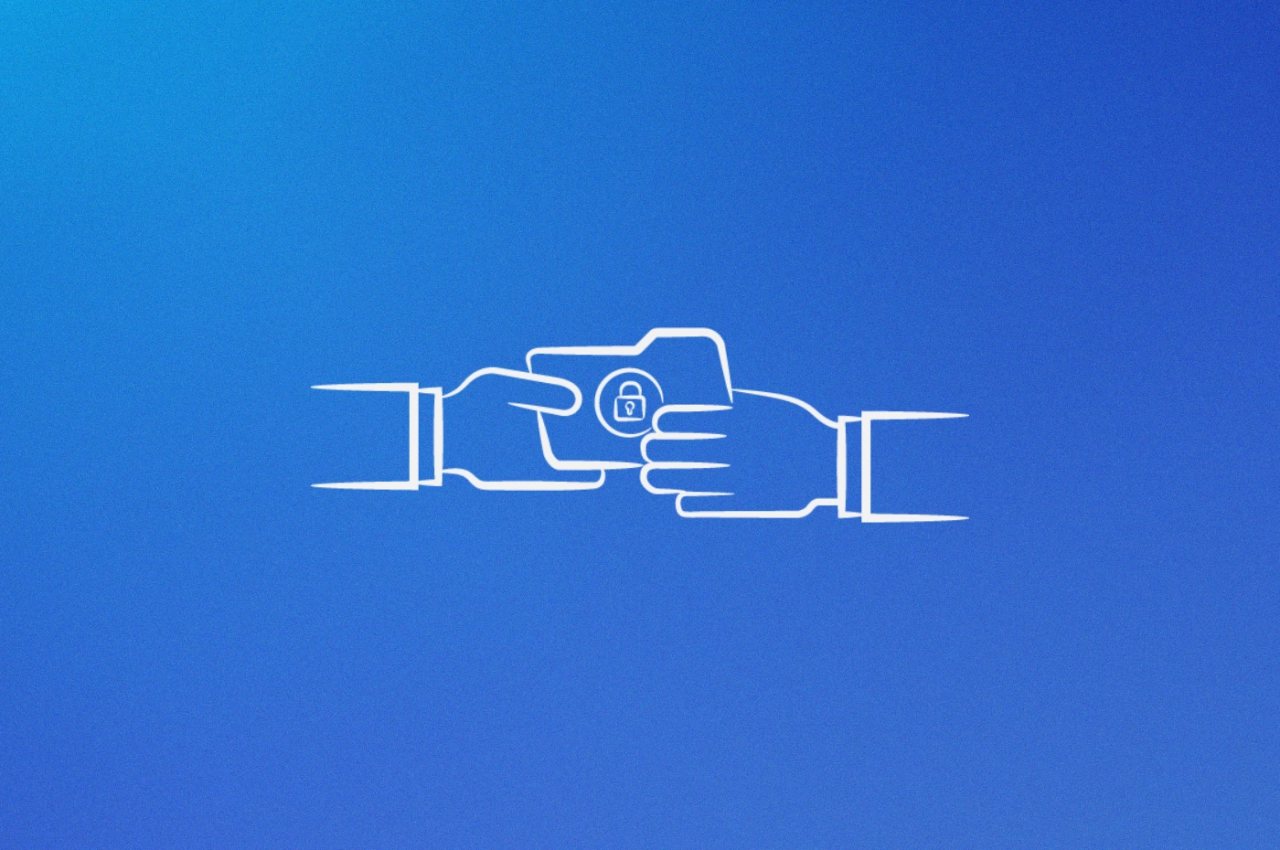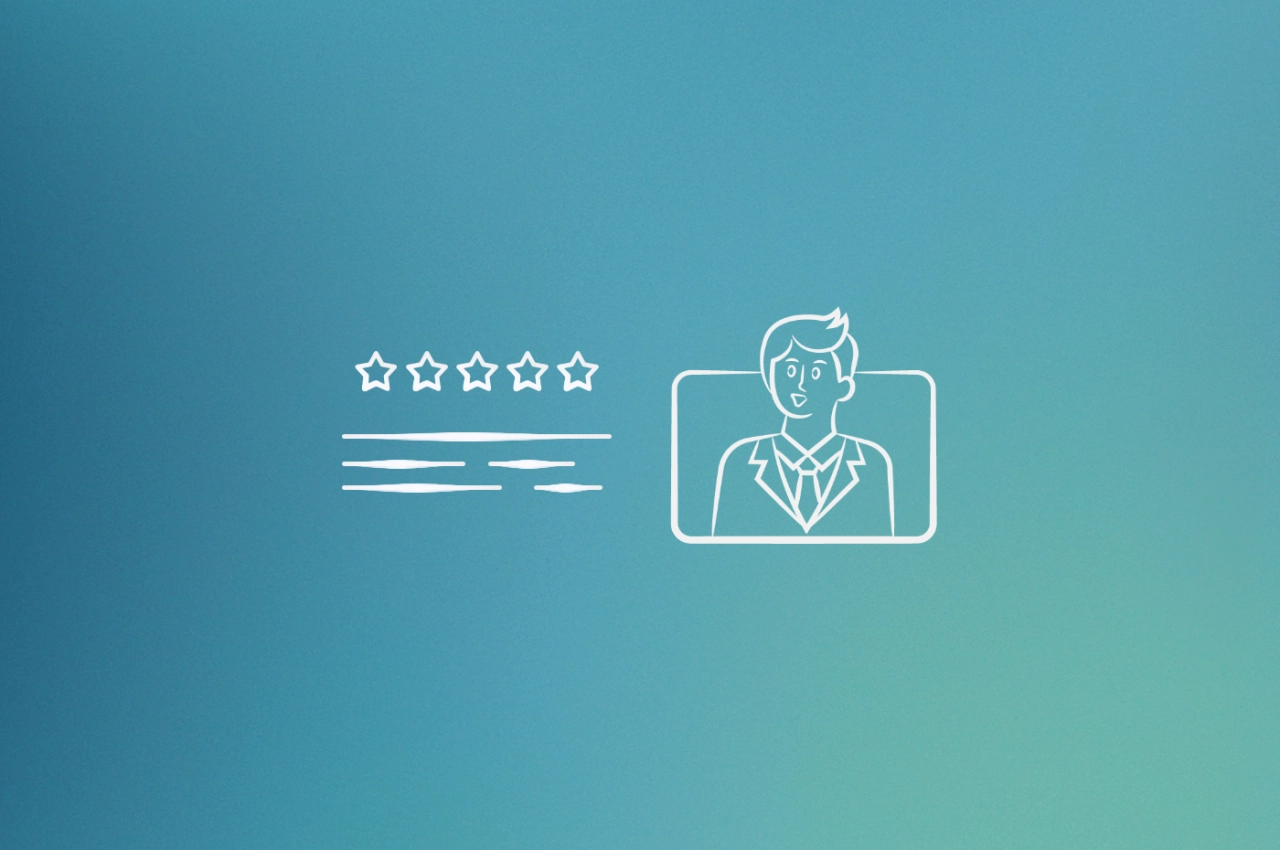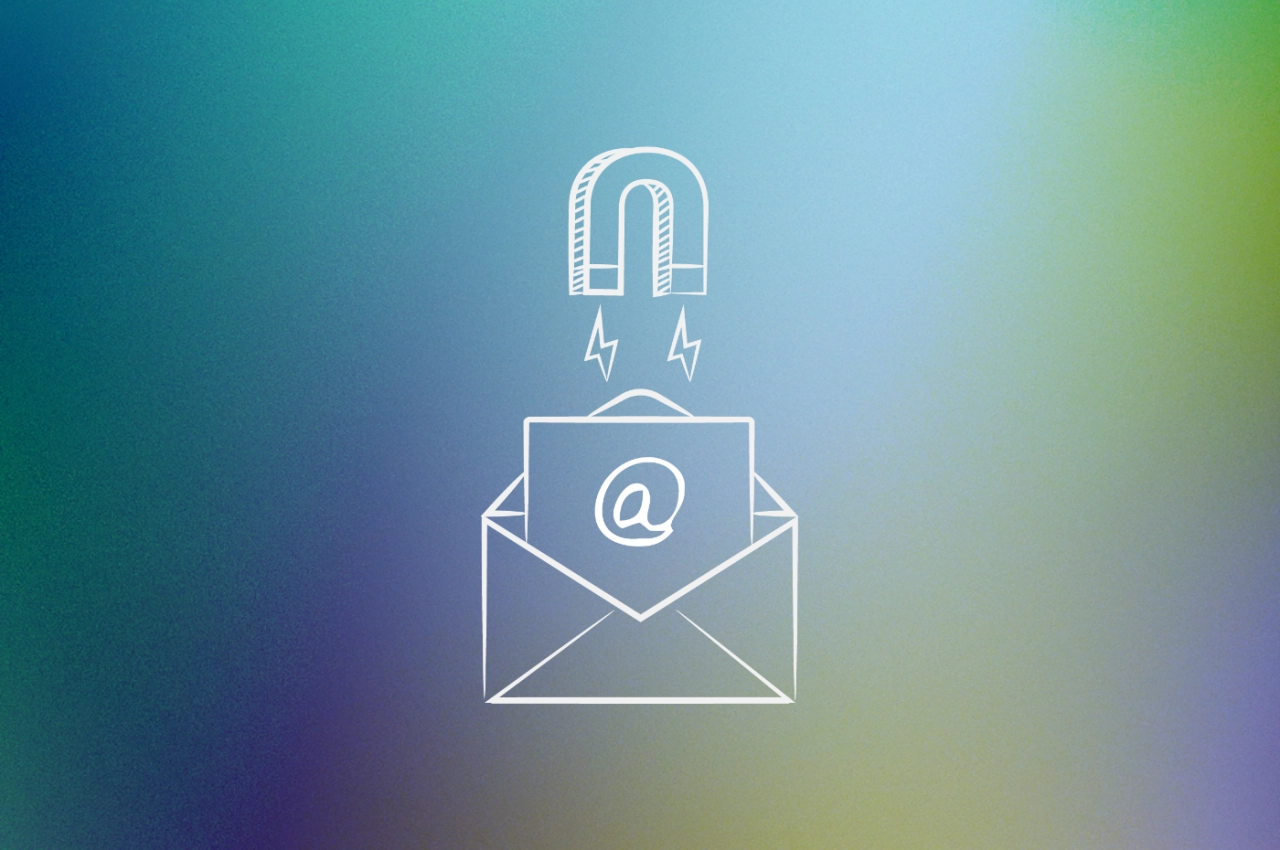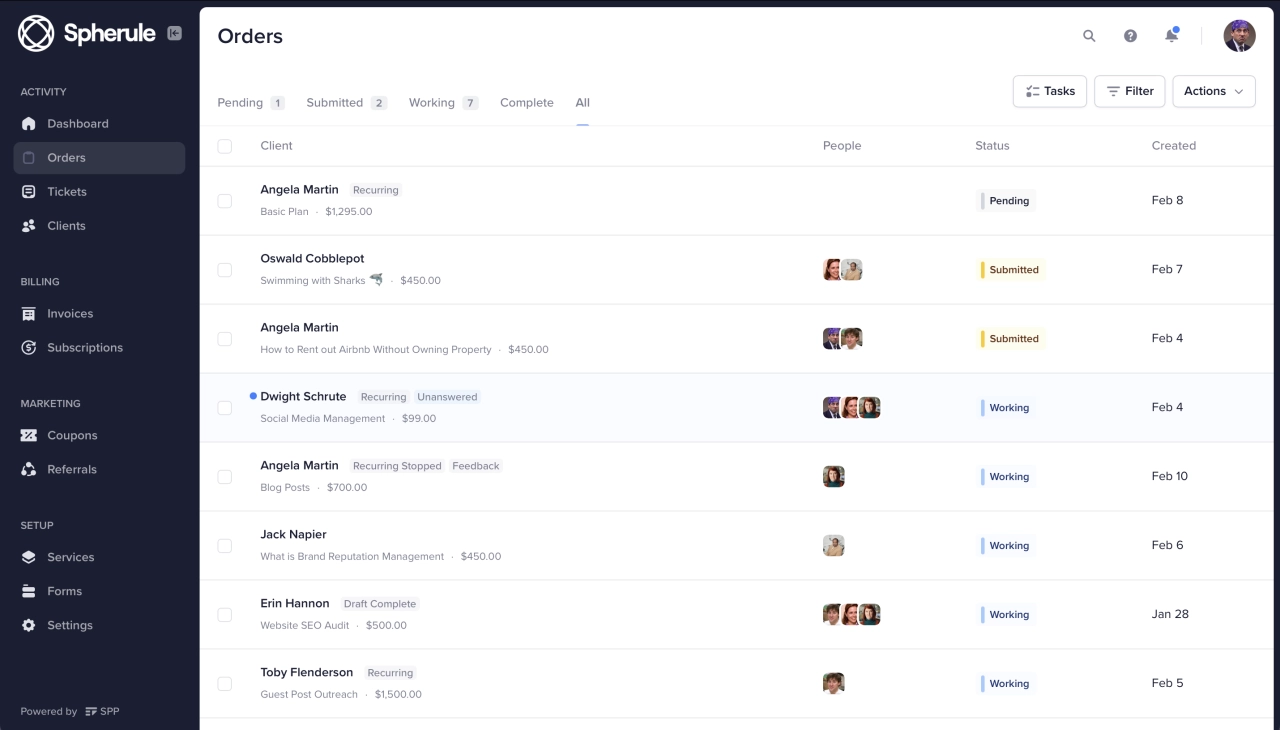- Keeping client information confidential is essential for building trust, protecting sensitive data, and maintaining a professional reputation.
- To ensure confidentiality, businesses can implement a range of measures such as using secure storage and communication methods, limiting access to sensitive information, and implementing confidentiality agreements.
- It is important for businesses to establish clear policies and procedures for maintaining confidentiality, educate employees on best practices, and regularly review and update their security measures.
It’s no secret that data is one of the most valuable commodities in today’s digital age. As such, you have a responsibility to keep track of your clients and protect their data. Failure to do this can result in legal penalties, reputational damage, and loss of business.
In this article, you’ll learn what client confidentiality is, its importance, and learn about effective strategies on how to keep client information confidential.
Understanding this topic involves several interconnected concepts:
Each of these concepts plays a crucial role in the overall topic.
What is client confidentiality?
Client confidentiality involves safeguarding your clients’ sensitive information from unauthorized access and use. This includes the data they provided upon becoming customers and any additional information you acquire about them during your business relationship. Its importance cannot be overstated.
Keeping your clients’ information confidential helps maintain a healthy customer relationship. Their trust and confidence are vital to your business. Mishandling their information can breach that trust and ultimately damage your relationship with them.
Moreover, failing to protect your clients and their information can result in reputational damage and expensive legal issues. Therefore, you must ensure their data remains secure to protect them from harm. This positions you as a reliable, trustworthy, and responsible business partner.
Strategies for keeping client information confidential
So, how do you protect confidential client information? Here are seven effective strategies to help you get started.
1. Using a secure file-sharing client portal
Maintaining client confidentiality starts from the basics. Before collating data or sharing information between you and your client, there must be a structure in place to prevent the need to fix security errors.
Trying to remedy an error can be taxing, and in most cases, third parties could have gotten access to your client’s information. So how do you prevent this?
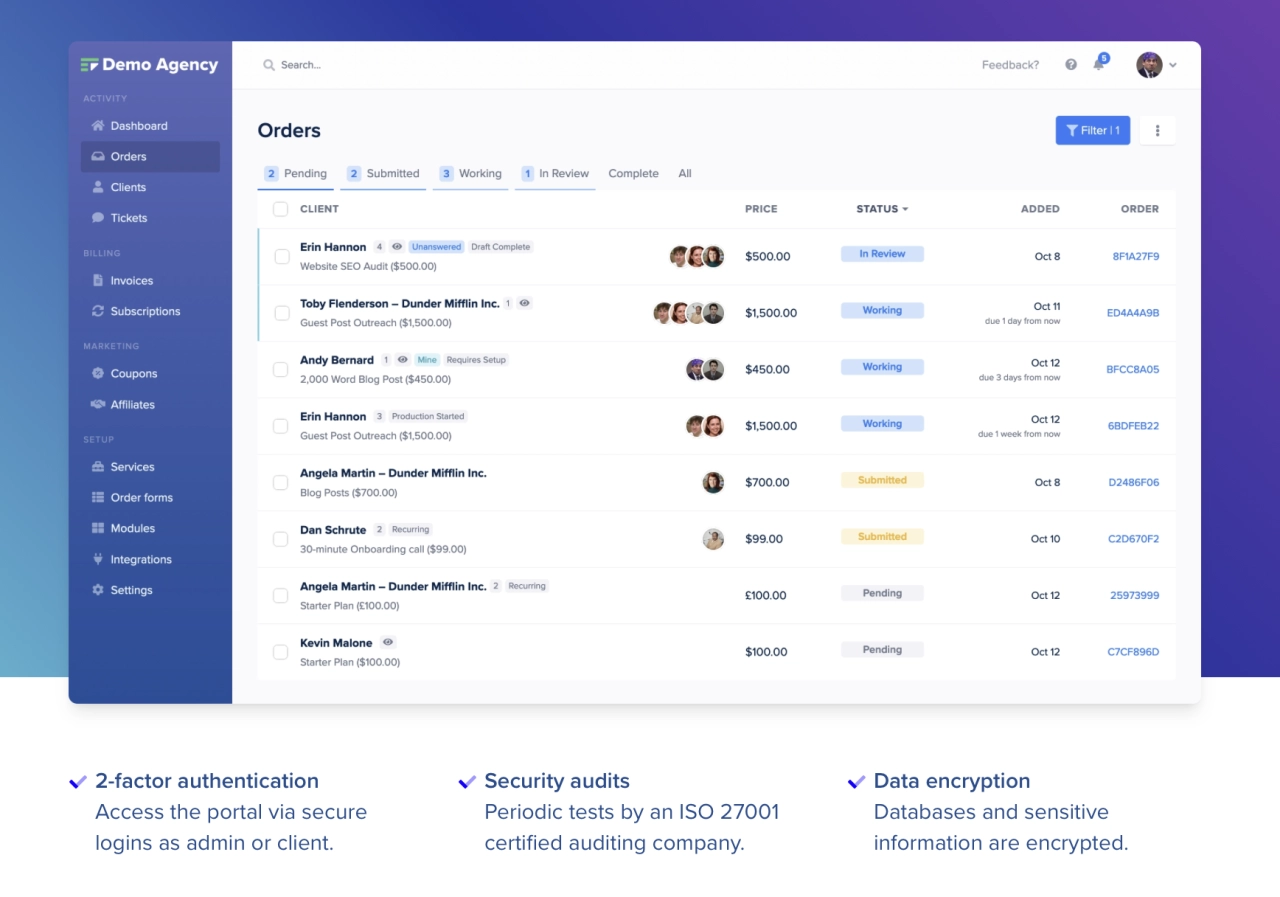
Use a secure client portal with file-sharing capabilities like Service Provider Pro (SPP). It removes the difficult task of keeping up with files shared across different platforms, and making sure they are secure. Additionally, the data is encrypted in order to prevent accidental information leakages.
Looking to make sure SPP.co is right for you? Get on a call with our customer success team.
SPP supports two-factor authentication that requires users to provide additional information (such as a security code) every time they log in. Also, it guarantees that only you have access to your client’s private information. Putting this in place ensures you can share data without worrying about third-party software breaches.
2. Limit third-party access control
A controlled access environment is crucial for safeguarding your company’s customer data, as it ensures that third parties are granted access only to the data pertinent to their roles. By utilizing Service Provider Pro (SPP), you can establish specific roles and restrict the data each collaborator can access, thereby enhancing security measures.
The advantage of providing limited access to everyone extends beyond merely protecting customer data; it also facilitates a more efficient workflow for employees and collaborators. This approach minimizes distractions and focuses their efforts on the tasks at hand, ultimately leading to improved productivity and streamlined operations.
3. Conduct security checks and training for employees
Nothing is as risky as leaving sensitive documents within the reach of someone prone to criminal activities. Between sending emails and handling clients’ documents, a little breach in your company’s security procedures can cause serious legal issues and a great loss of clients.
That’s why it’s best to conduct a thorough background check before recruiting new employees. Instead of taking matters into your own hands, you can use companies such as GoodHire to help you implement a screening program that fits your needs.
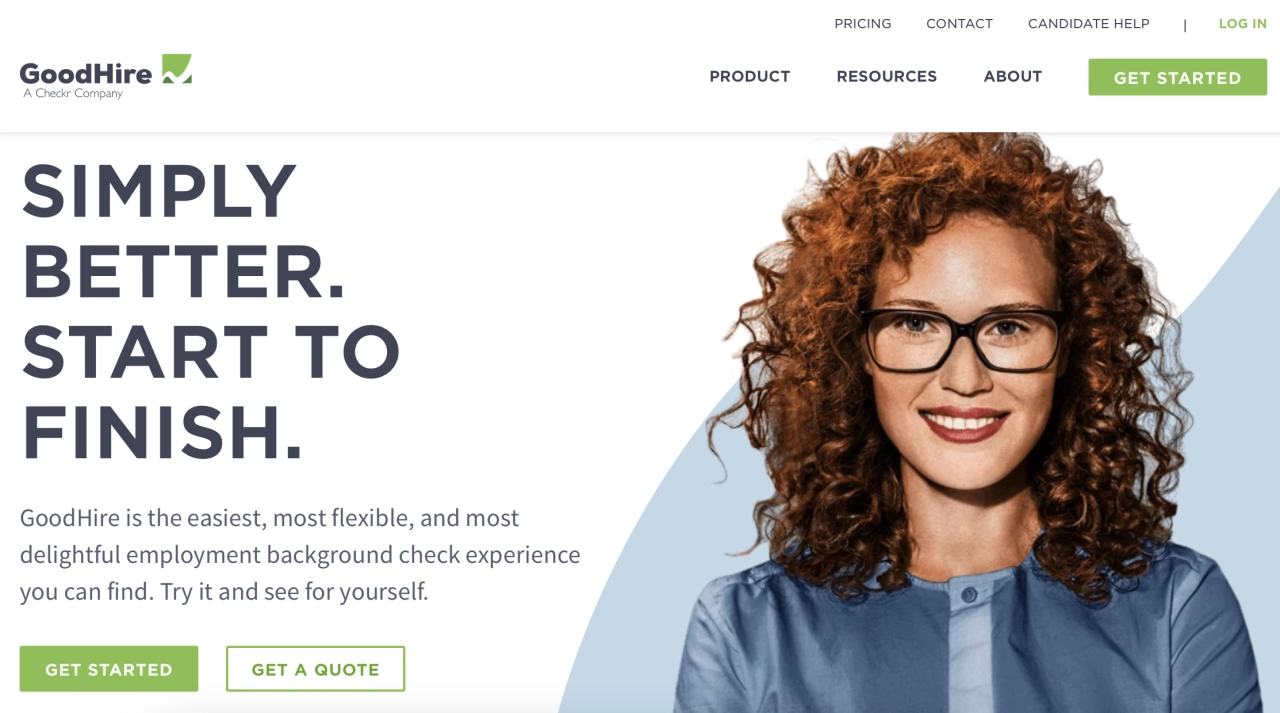
It is also crucial to complement your efforts by hosting routine security training for all staff members. This way, your employees are well-educated on the best security practices while they work onsite and remotely. In fact, consulting a cybersecurity would be a wise decision for additional security.
4. Beware of cybersecurity threats
No matter how tight and reliable you think your cybersecurity is, fraudsters are relentless in their commitment to hacking into company systems to gain access to data. Top companies like Facebook, Microsoft, and Google have experienced security breaches in the past. So your business is not immune to this.
That’s why it’s important to always look out for cybersecurity issues and resolve any errors immediately. Be mindful of hosting third-party software on systems that contain vital security information. Also, read the terms and conditions of any application before installing it. This goes especially for browser extensions that often require extended access to your data.
5. Maintain updated cybersecurity software
The best way to protect your company from cybercrime is to stay updated on the latest cybersecurity threats. Invest in log monitoring tools to keep an eye on your systems and ensure that private data isn’t being accessed by unauthorized personnel.
Also, ensure your software is regularly updated and watch out for any change in trend that may serve as a deterrent to your already established security endeavors.
A combination of these practices will give you an advantage against the activities of hackers and minor breaches.
6. Ensuring compliance with industry regulations
Many industries have regulations that govern how companies must handle personal data. Regulations and standards like
HIPAA (Health Insurance Portability and Accountability Act),
GDPR (General Data Protection Regulation),
PCI DSS (Payment Card Industry Data Security Standard), or
ISO 27001.
If you’re in one of these industries, then you must comply with the law to maintain confidentiality.
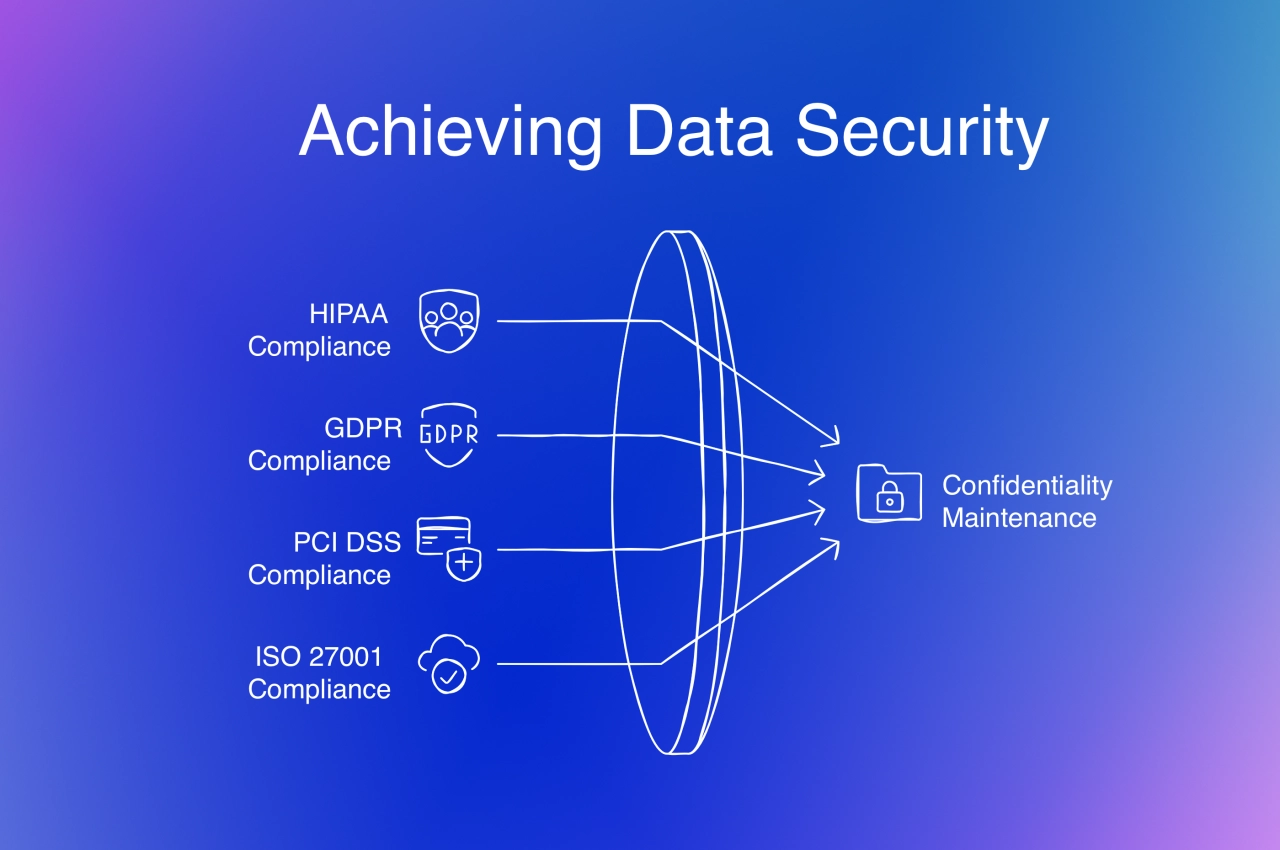
Keep in mind that you might have to comply with standards of other countries even if your business is located somewhere else, but you serve clients in that region.
7. Avoid using mobile phones and use portable devices carefully
As much as personal phones are portable and mobile, they are susceptible to internal and external security threats, especially if stolen.
Some phone applications cannot be trusted. They require access to your phone’s storage, camera, location, and might send sensitive information to a third party. This means your phone can be spied on, which puts vital information at risk. A general rule of thumb is to keep work and personal devices separate.
If you must use portable devices, be conscious of the risks involved. Portable devices like flash drives and SD cards are also prone to theft. Keep them locked and encrypted, use password protection, and store them in locked spaces out of reach.
Legal exceptions to confidentiality
While it’s your responsibility to protect your client’s confidentiality, there are legal exceptions to this rule. Duty to warn and protect laws impose an obligation on you to breach confidentiality in situations where safety is at risk. For example, if you have reasonable grounds to suspect that a client might be involved in facilitating illegal activities, you are required to take necessary actions to prevent harm.
How to keep client information confidential FAQ
Why is it important to maintain client confidentiality?
Client confidentiality is essential for workplaces to maintain client trust and adhere to compliance regulations. The implications of breaching client confidentiality include legal consequences, heavy fines, and loss of clients.
How do you ensure information is kept confidential?
The basic rule of maintaining information confidentiality is adopting the best security practices within the work environment. Some of them include restricted data access, implementation of non-disclosure agreements among employees, and using reliable cybersecurity software.
What client information should be kept confidential?
Every detail released by a client to a company must be kept confidential. This includes their personal information and transaction details. What exactly classifies as confidential differs from one organization to another.
What type of customer information is subject to confidentiality?
Customer information like medical records, social security, bank details, address, email, and phone number should be strictly confidential.
Which practice should you follow while interfacing with customers regarding data confidentiality?
Always maintain strict confidentiality of customers’ personal data. This includes using secure communication channels, implementing role-based access controls, training staff on data handling procedures, and following GDPR/CCPA compliance requirements. Never share client information without explicit consent and documented authorization.
Describe three steps a business can take to prevent security issues and maintain client confidence.
1) Technical security: Implement two-factor authentication, and regular security audits. 2) Access controls: Use role-based permissions, secure password policies, and regular access reviews. 3) Staff training: Conduct regular security training, require NDAs, and establish clear data handling procedures. These steps protect client data and demonstrate professionalism.
Which practice should you follow while interfacing with customers regarding data confidentiality?
Always maintain strict confidentiality of customers’ personal data. This includes using secure communication channels, implementing role-based access controls, training staff on data handling procedures, and following GDPR/CCPA compliance requirements. Never share client information without explicit consent and documented authorization.
Who should have access to a client’s confidential information?
Only employees with direct project involvement and authorized access levels should access client data. Implement role-based permissions: project managers get full project access, team members get task-specific access, and executives get summary-level access. Document all access with audit trails, require signed NDAs, and conduct regular access reviews to remove unnecessary permissions.
Make client confidentiality a top priority
Between fulfilling services, managing employees, and coordinating daily activities, maintaining client confidentiality can be challenging.
However, giving room for security breaches is no risk any company wants to take. So set your priorities right by applying the aforementioned strategies. This way, you will be able to keep your client’s information private and earn their trust.

